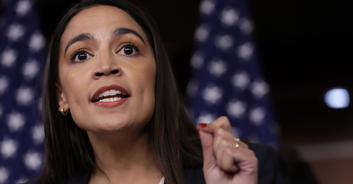When Donald Trump was running for president, he promised his supporters that he would build a wall at the US southern border and that Mexico would pay for it. However, after becoming president, he failed to persuade Mexico to agree to this proposal. For his first two years in office, Republicans controlled the Senate and the House, yet the long-promised border wall was unbuilt.
Following the 2018 midterm elections, in which Democrats retook the House in a 'blue wave,' Trump tried to fund the border wall through taxpayer money. Lawmakers submitted a bipartisan spending bill to Trump, but he refused to sign anything that did not contain $5 billion for wall funding. This led to the longest government shutdown in US history, in which 800,000 federal workers were forced to take unpaid leave or work without pay, with the promise of getting reimbursed later.
After 35 days, Trump finally signed a short-team deal to end the shutdown, which included funding for increased border security, but not the promised wall. Faced with no other option, the president declared a national emergency over illegal immigration, a dubious claim since he admitted, "I didn't have to do this." In theory, money could be diverted from other programs, like military reconstruction projects and drug forfeiture funds, for the wall, however 16 states have filed lawsuits. Critics say Trump's 'national emergency' at the US-Mexico border is a manufactured crisis and a gross abuse of executive power.
In a stunning rebuke, today the Senate voted to terminate Trump's national emergency, 59-41. Twelve Republicans crossed the line to vote with Democrats, which is not enough to form a veto-proof majority, but is nonetheless a embarrassing blow for the president. (In February, the resolution passed the House, 245-182, with 13 moderate Republicans crossing the aisle.)
"Declaring a national emergency to access different funds sets a dangerous new precedent," stated one of the GOP defectors, Senator Rob Portman of Ohio, in remarks on the Senate floor. "It opens the door for future presidents to implement just about any policy they want...a future President could seize industries... [and] say that climate change is a national emergency and use emergency authorities to implement the Green New Deal."
On Twitter, Trump vowed to veto the resolution, and called out the GOP defectors as turncoats. "A vote for today’s resolution by Republican Senators is a vote for Nancy Pelosi, Crime, and the Open Border Democrats!", he tweeted. (In order to secure a veto-proof majority, the House would to muster up 290 votes and the Senate would need to gather 67.)
The 12 Republicans who voted country over party were Marco Rubio of Florida, Rob Portman of Ohio, Susan Collins of Maine, Lisa Murkowski of Alaska, Pat Toomey of Pennsylvania, Roy Blunt of Missouri, Lamar Alexander of Tennessee, Mitt Romney of Utah, Rand Paul of Kentucky, Jerry Moran of Kansas and Mike Lee of Utah.

